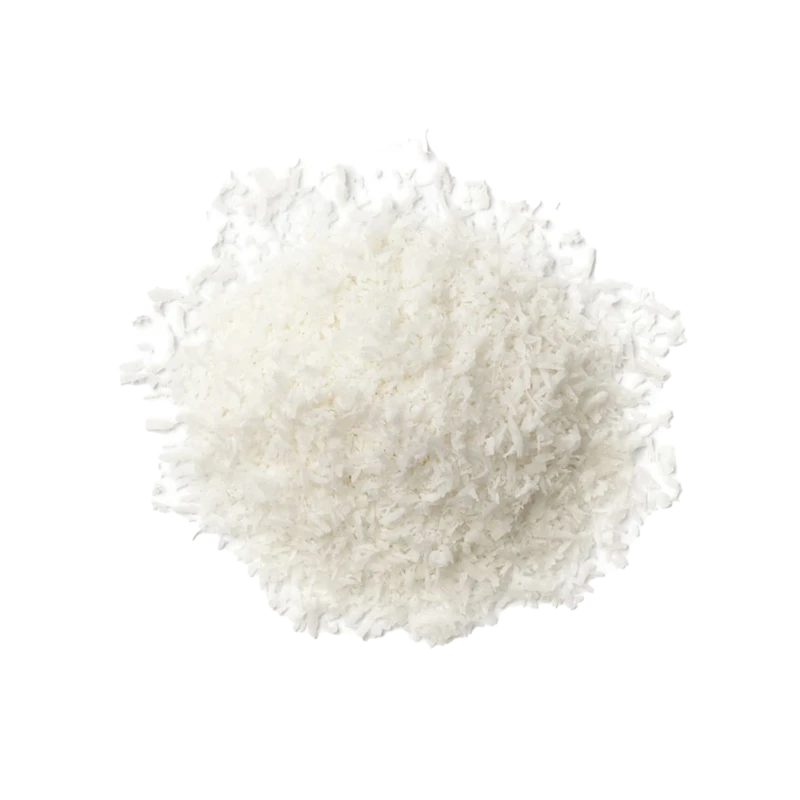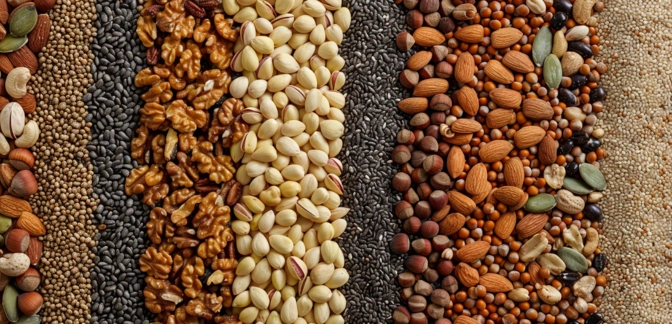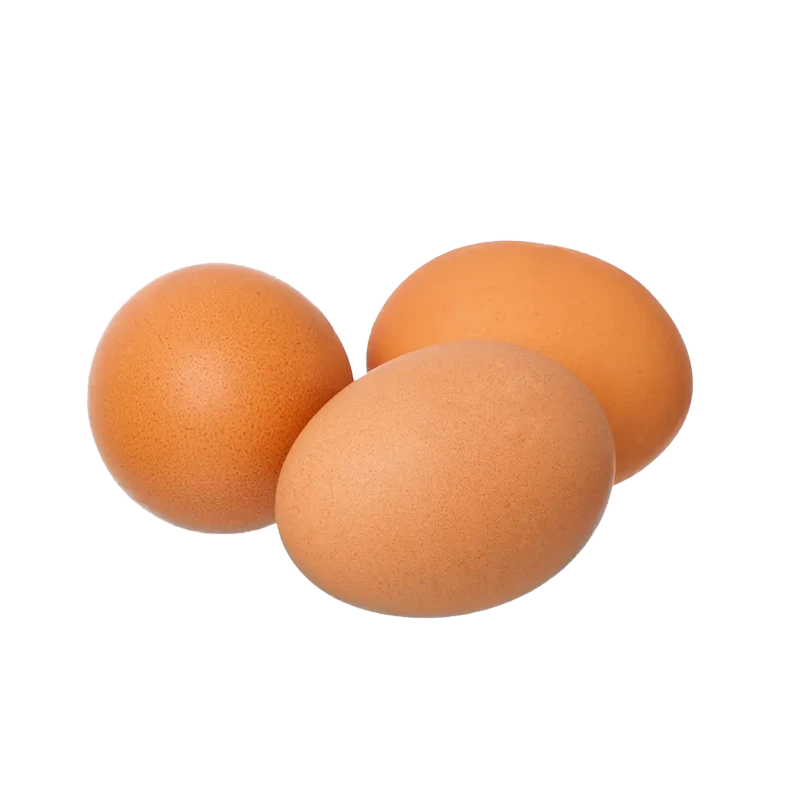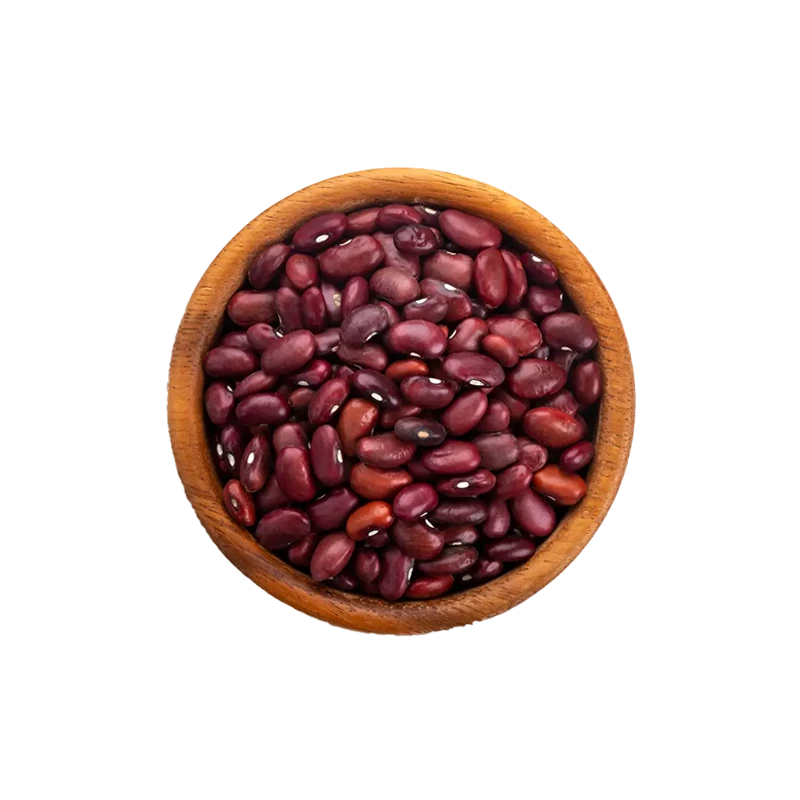Desiccated Coconut — Nutrients, Health Benefits, and Shopping Tips

Written by Listonic Team
Last update on September 6, 2024
Nutrients
Nutrition facts
Amount per 100 g
Calories
🔥 660 kcal
| Nutrients per: 100 g | Value | % Daily Value* |
|---|---|---|
| Carbs | 24 g | 8.73% |
| Fiber | 16 g | 57.14% |
| Sugars | 7 g | 14% |
| Glycemic Index | 42 | - |
| Protein | 7 g | 14% |
| Sodium | 37 mg | 1.61% |
| Total Fat | 65 | 83.33% |
*The % of Daily Value (DV) tells you how much a nutrient in a serving of food contributes to a daily diet. 2,000 calories a day is used for general nutrition advice.
16 g
✅ High Fiber Content
42
🟢 Low Glycemic Index
Key takeaways
Health benefits
- Rich in healthy fats, particularly medium-chain triglycerides (MCTs), which provide a quick source of energy and may support metabolism.
- High in fiber, promoting digestive health, regular bowel movements, and a healthy gut microbiome.
- Contains essential vitamins and minerals such as iron, zinc, and copper, which support overall health and well-being.
- Supports immune function with its antimicrobial properties, helping to fight off infections.
- Versatile and convenient, adding texture and flavor to a variety of dishes and baked goods.
Health risks
- High saturated fat content which can contribute to increased cholesterol levels and raise the risk of heart disease when consumed frequently in large amounts.
- High calorie content which can contribute to weight gain if not consumed in moderation, especially when added to calorie-dense foods or desserts.
- Potential for allergic reactions in individuals allergic to coconut, causing symptoms like itching, swelling, or difficulty breathing.
- Risk of digestive discomfort such as bloating or diarrhea when consumed in large quantities, particularly in those not accustomed to high-fiber foods.
How to choose desiccated coconut
For desiccated coconut, freshness is indicated by a white color and a subtle, sweet coconut smell. It should feel dry to the touch and look finely grated without clumping. Ensure it's stored in a cool, dry place to maintain its texture.
Avoid any desiccated coconut that smells musty or looks yellowed. Properly dried coconut will add a light, sweet flavor to dishes without overpowering them.

How to store desiccated coconut
Desiccated coconut should be stored in an airtight container in a cool, dry place. A pantry or kitchen cabinet is perfect for preserving its freshness. Properly stored, it can last up to six months.
Moisture can cause desiccated coconut to clump and lose quality. It's important to keep it away from heat sources. Ensuring the container is well-sealed helps maintain its texture and prevents spoilage.
✅ Extra Tip
How long does it last?
Desiccated coconut can last for 6 months to 1 year when stored in an airtight container in a cool, dry place. For longer storage, it can be frozen and kept for up to 2 years.
What to do with leftovers?
Leftover desiccated coconut can be used in a variety of sweet and savory dishes. Sprinkle it over yogurt, oatmeal, or smoothies for added texture and flavor, or use it in baking to add a tropical twist to cookies, cakes, or muffins. Desiccated coconut is also great in granola or trail mix, where it adds a chewy texture.
Use desiccated coconut to make homemade coconut macaroons or add it to a curry for a subtle coconut flavor. If you have a lot of desiccated coconut, consider using it as a coating for fried shrimp or chicken for a crispy, tropical twist. Desiccated coconut can also be blended into a coconut butter for spreading on toast or adding to recipes, or used as a topping for ice cream and other desserts. For a unique twist, try using desiccated coconut in a savory stir-fry with vegetables and your choice of protein.
👨⚕️️ Medical disclaimer
How desiccated coconut supports specific health conditions
Desiccated coconut is a dehydrated form of coconut rich in healthy fats, particularly medium-chain triglycerides (MCTs), which support brain function and provide quick energy. Its fiber content supports digestive health by promoting regular bowel movements. Desiccated coconut also contains antioxidants, helping protect cells from oxidative stress and supporting immune health. Additionally, it provides a low-carb option for weight management when used in moderation.
Discover products from other categories
Listonic Team
Fact-checked
Our editorial team checked this article to make sure it was accurate at the time of publishing it.
Get the top-rated shopping list app

desiccated coconut







